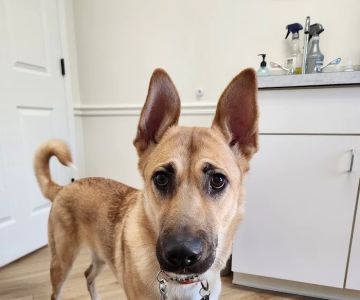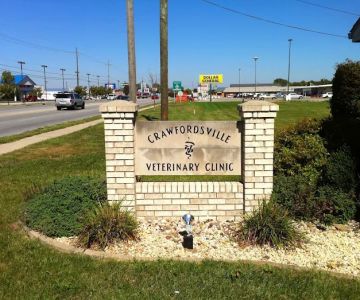Can a Veterinarian Be Prosecuted for Dental Work?
As pet owners, we trust our veterinarians with the health and well-being of our animals, but what happens when a veterinarian performs a dental procedure that goes wrong? It’s a question I’ve pondered after hearing about a few cases where veterinarians were faced with legal action for their dental work on animals. In this article, I’ll explore whether a veterinarian can be prosecuted for dental work, what legal implications they face, and how to navigate these tricky waters.
1. The Growing Role of Veterinary Dental Care
In recent years, veterinary dental care has gained a lot of attention. As we become more aware of the importance of oral health for our pets, many of us seek out professional dental care for our dogs, cats, and other animals. Dentists for animals are now equipped with specialized tools and knowledge to perform thorough teeth cleanings, extractions, and even surgeries if necessary.
But the question remains—if a veterinarian makes an error during one of these procedures, can they face legal repercussions? The simple answer is yes, veterinarians can be prosecuted for malpractice if their dental work causes harm to the animal or the animal’s owner. Like any healthcare provider, veterinarians are held to specific standards of care and ethics.
1.1 When Is a Veterinarian’s Dental Work Considered Malpractice?
Veterinary malpractice is when a veterinarian fails to perform their duties competently, resulting in harm to the animal or to others involved. In dental work, this can include performing unnecessary extractions, not providing proper anesthesia, or making mistakes during surgery. If an animal suffers physical harm or pain because of an error during a dental procedure, the veterinarian could be found negligent and may face a lawsuit.
2. Legal Risks and Consequences for Veterinarians
In some cases, veterinarians have been prosecuted or sued for errors during dental work, and the legal consequences can be severe. Depending on the nature of the error, the veterinarian could face financial penalties, loss of their license, or even criminal charges in the most extreme cases.
2.1 Civil Lawsuits for Malpractice
The most common legal action veterinarians face in relation to dental work is a civil malpractice lawsuit. If an animal suffers harm as a result of the veterinarian’s negligence, the owner may file a lawsuit seeking compensation for the animal’s suffering, veterinary bills, and other related costs. I’ve heard of pet owners seeking financial restitution for veterinary fees after a botched dental procedure, and the amount can be significant depending on the case.
2.2 Criminal Prosecution for Negligence
While rare, criminal prosecution is possible in cases where the veterinarian’s actions are particularly egregious, such as performing dental work without proper qualifications or causing severe, irreversible harm to the animal. For example, performing surgery without consent or failing to monitor anesthesia could lead to criminal charges. These types of cases tend to make headlines and can severely damage a veterinarian’s career and reputation.
3. How Can Veterinarians Avoid Legal Issues?
For veterinarians, it’s essential to understand the legal requirements of their profession, especially when it comes to specialized fields like dentistry. There are steps that veterinarians can take to avoid potential legal issues, and these steps benefit both the animal and the owner.
3.1 Education and Certification
Veterinarians performing dental work should ensure they are properly educated and certified in veterinary dentistry. Just as human dentists have specialized training, veterinarians must have the skills and knowledge to perform complex dental procedures. I’ve learned that continuing education, attending veterinary dental workshops, and gaining certification from veterinary dental organizations can provide credibility and prevent mistakes that could lead to legal action.
3.2 Communication and Documentation
Clear communication with the pet owner is essential. Veterinarians should always inform the pet owner of the risks involved with dental procedures, obtain informed consent, and thoroughly document the procedures performed. This documentation serves as a record that can protect veterinarians in case of any legal disputes. From what I’ve seen, proper documentation has been a key factor in defending against accusations of negligence.
4. What to Do If You Are a Pet Owner Concerned About a Veterinarian’s Dental Work
If you’re a pet owner and are concerned about the quality of care your veterinarian provided during a dental procedure, it’s essential to take certain steps to protect both your pet and your legal rights. While errors can happen, there are ways to address concerns before they escalate into legal issues.
4.1 Speak With the Veterinarian
If you suspect that there has been an error during your pet’s dental procedure, your first step should always be to communicate directly with the veterinarian. In many cases, issues can be resolved amicably without needing legal action. Veterinarians are often willing to work with pet owners to fix any problems that arise, such as offering to redo the procedure or covering additional treatment costs.
4.2 Seek a Second Opinion
If you’re not satisfied with the veterinarian’s response, seeking a second opinion from another licensed veterinarian or a veterinary dentist is always a good idea. This can help you better understand the nature of the issue and whether the initial treatment was performed correctly.
5. Conclusion: How to Protect Yourself and Your Pet
When it comes to dental work for your pet, the best thing you can do as a pet owner is to thoroughly research the procedure and the qualifications of the veterinarian performing the work. Veterinary malpractice is rare, but it’s not impossible. Knowing your rights and understanding the steps to take if something goes wrong can help ensure the safety and health of your beloved animal.
If you’re ever in doubt about your pet’s dental care or if you suspect negligence, don’t hesitate to seek professional advice or legal counsel. Protecting your pet’s health is essential, and there are resources available to help you navigate any issues that may arise.











